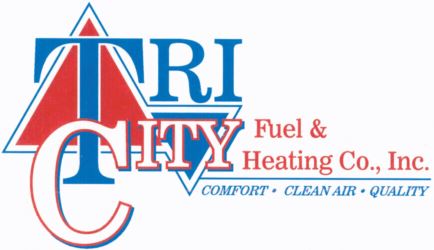Buying your first home is exciting. You’re probably juggling numerous details to ensure you’re making the right choice. We believe that gaining insight into your future HVAC system is crucial. The property’s HVAC system represents a significant investment and potential source of long-term costs, which is why due diligence is important for first-time homebuyers.
In this guide, we’ll share seven tips for discovering all there is to know about a home’s heating and cooling system. And if you want a more in-depth opinion from the pros, feel free to call Tri City Fuel & Heating. Our staff can weigh in on your options with industry insights that are second to none.
1. What Type of HVAC System Is It?
Start by determining what kind of HVAC system the home includes. Furnaces generally last longer compared to air conditioners, and relatively new types of HVAC equipment like heat pumps boast average life spans that are impressively long. Tracking down the make and specific model gives you a clear idea of how much maintenance it will require.
2. How Long Ago Was the System Installed?
It’s just as smart to learn how old the HVAC system is when you’re considering a potential new home. On average, HVAC systems last about 10-12 years. Having the knowledge of when it was installed helps you prepare for any needed servicing or considerations if it might eventually stop working. Older systems may be more vulnerable to problems, so fiscal planning for a replacement unit might be needed faster than expected.
3. Is the Warranty Still in Effect?
Don’t forget to look into whether the HVAC system is covered by a warranty. If it is, this can lighten the load for maintenance expenses. HVAC warranties typically include parts and labor, but it’s important to note that details will vary. Don’t forget to look into any terms that aren’t familiar to make sure you fully understand your coverage and the likelihood of out-of-pocket costs.
4. Has the System Ever Been Professionally Serviced or Maintained?
Take a close look at the maintenance history of the HVAC system, if this kind of history is available. This service history can demonstrate if the repair needs are high or how often maintenance is performed. Inquire about key tasks like filter changes, which can indicate it received regularly scheduled tune-ups.
5. Do You Know Its Energy Efficiency Ratings?
Purchasing a home with a heating and cooling system with great energy efficiency can lead to smaller utility bills and a smaller environmental impact. Check out the seasonal energy efficiency ratio (SEER) ratings for air conditioning as well as the annual fuel utilization efficiency (AFUE) for furnaces. The higher the SEER rating, the more efficient the cooling over the whole season, while higher AFUE ratings indicate that the fuel is more effectively burned for useable heat.
6. Did You See Any Problems After Completing an Informal Inspection?
Even if you don’t have heating and cooling expertise, it’s still a good idea to examine the HVAC system on your own. Watch closely for any concerning items that weren’t mentioned by the seller or real estate agent. This can mean bizarre noises, unequal airflow and attempts to cover up any visible damage.
7. Is an Experienced HVAC Technician Available to Help?
If you’re unsure about the condition of the HVAC system, it’s beneficial to get an assessment and recommendation from experienced HVAC professionals. They are skilled at identifying things you might miss, including refrigerant leaks, damage to the wiring or damaged ductwork.
A Consultation with Tri City Fuel & Heating Helps Take the Stress Out of Your Home-Buying Journey
Finding your first home should be thrilling, and Tri City Fuel & Heating will do everything possible to ensure that doesn’t change. Get in touch with us at 803-592-9776. We can talk about how our HVAC services ease your mind, giving you what you need to step into your new home with confidence.


